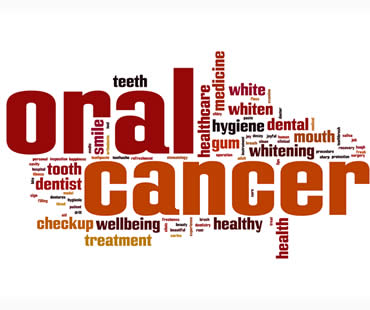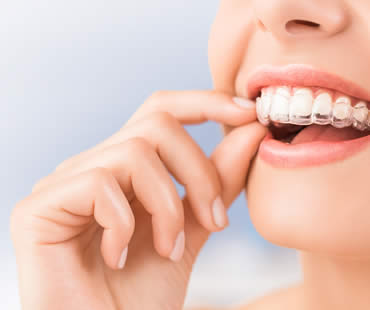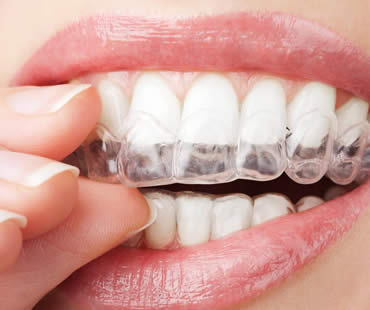
Most people have friends or family who have had to deal with the disease cancer in some area of the body. Cancer can be described as uncontrollable cell growth that invades and damages surrounding tissue. Oral cancer often shows up as a persistent sore or growth in the mouth, but also includes cancers of the tongue, lips, cheeks, palate, throat, and sinuses. Like most cancers, it can be life threatening without early detection and treatment.
Symptoms
Common symptoms of oral cancer include:
- Swelling, lumps, or rough spots on your lips, gums, or other mouth areas
- White or red patches in your mouth
- Numbness or tenderness in your mouth, neck, or face
- Unexplained bleeding in your mouth
- Sore throat or feeling that something is stuck in your throat
- Persistent sores in the mouth, neck or face that bleed easily and do not heal in two weeks
- Hoarseness or chronic sore throat
- Difficulty swallowing, chewing, talking, or moving your jaw or tongue
- Earache
- Substantial weight loss
Risk factors
Men are at twice as high risk for oral cancer than women, and men over 50 are at greatest risk. The biggest risk factors include any kind of smoking or using smokeless tobacco, excessive alcohol consumption, excessive sun exposure, or family history of cancer. However, it’s important to know that more than 25 percent of oral cancers occur in people who do not smoke or only drink alcohol occasionally.
Diagnosis
Routine dental checkups include an examination for signs of oral cancer. A biopsy may be performed on any suspicious areas. Regular checkups are important so that tests can identify oral cancer early, before it can spread or progress.
Treatment
Oral cancer is often treated similarly to other types of cancers. It may include surgery to remove the growth, followed by radiation or chemotherapy to destroy remaining cancer cells.
If you live in the Meriden area contact us today

Sedation dentistry provides a way for those who experience anxiety or fear about visiting the dentist to get the treatment they need. It is also helping in relieving pain, and enabling more dental work to be performed in one visit. Two common methods of administering sedation are oral and intravenous (IV). Each type has its own unique characteristics and attributes.
Oral sedation involves swallowing pills or liquids. There are no shots, which is good news for patients afraid of needles. However, oral sedatives are less predictable because each medication affects people differently based on age, weight, medical history, and more. Also, there is a time delay between swallowing it and taking effect. Since the medication is absorbed through digestion, it is difficult to alter the sedation level quickly during treatment. Nearly all patients respond well to oral sedation, with few occurrences of any side effects. Patients typically don’t remember anything that occurred during treatment.
IV sedation means that the medication goes directly into the blood stream though an IV injection. A very powerful method, the effects are instant once the shot is given. If the medication begins to wear off, more can be administered through the IV for immediate results. IV sedation is very common during oral surgeries, which benefit from the ability to alter the medication dosage as needed. It is advantageous for long procedures or when multiple treatments are being done in one sitting. Patients will not remember the procedure or sometimes even the appointment at all. The biggest drawback of IV sedation is for patients who dislike needles. IV sedation requires that the dentist have special training and certification, so make sure that your dentist is qualified if this method is offered.
Both types of sedation can be effective depending on the situation and patient. Discuss your case with your dentist to help you decide which one might be the best for you.
If you need a dentist in Meriden contact us today

More than 12 million Americans suffer from sleep apnea, a serious condition that compromises your rest and can impact your health. Some symptoms of sleep apnea include snoring, extreme daytime tiredness, mouth breathing, and irritability. Obstructive sleep apnea (OSA) is the most common type of sleep apnea. Central sleep apnea, much less common, happens when the brain fails to signal your breathing muscles.
Characterized by short episodes of not breathing, which can occur from five to 50 times a night, obstructive sleep apnea is caused when the muscles in your throat relax and your airways become blocked as you sleep. Your brain senses the lack of breathing and wakes you briefly to restore airflow. These episodes disrupt sleep and keep you from feeling rested.
Not only does sleep apnea keep you from getting a good night’s rest, but it can also put your health at risk. Untreated sleep apnea has been linked to high blood pressure, risk of stroke, memory impairment, and weight gain. As well, your sleep partner may not get enough sleep because of your snoring and/or waking episodes.
If you suspect sleep apnea, talk with your dentist, who may recommend a sleep evaluation. Through overnight monitoring, a sleep specialist can determine if you suffer from sleep apnea. Treatment for sleep apnea may include lifestyle modifications such as weight loss, a continuous positive airway pressure (CPAP) mask, or an oral appliance. Your dentist can fit you for night guard that will hold your jaw in the correct position to keep your airways open.
If you live in the Meriden area contact us today

Babies obviously can’t take care of themselves, so parents have to handle all aspects of their care. Don’t forget their oral health! Parents need to lay the groundwork for lifelong good dental habits and healthy smiles for their children. Here are some answers to common questions about baby teeth.
Do baby teeth matter?
Primary, or baby, teeth are important. They help children chew naturally and speak clearly. They provide the place for adult teeth to grown in properly later.
Should I brush my baby’s teeth?
You should brush your baby’s teeth without toothpaste, using a small amount of water instead. Use a small, soft-bristled toothbrush at bedtime to remove plaque and bacteria from your baby’s teeth and gums.
When can I start using toothpaste?
Fluoride toothpaste can be implemented after age two, when a child can be trusted not to swallow the toothpaste. Only use a small amount of toothpaste, and watch the child carefully to ensure proper brushing and spitting out the toothpaste.
When should I take my child to the dentist?
Experts recommend taking your child to the dentist when their first tooth appears, or by their first birthday. Your child should be taken for dental visits every six months, or more often if your dentist has concerns.
Do I need a certain type of dentist for my child?
You may choose a pediatric dentist who has been trained specifically to treat children. Their goal is to teach children about oral hygiene and the importance of taking care of their teeth, as well as provide a comfortable experience in visiting the dentist. However, you may also choose a regular dentist to take care of your child’s oral health. It is up to you to decide which kind of dentist is right for your family.
Our dental office is located in Meriden

Traditional braces have long been thought to be the only option available to straighten your teeth and correct your bite issues. Advances in Invisalign aligners now give you a choice, one that might just leave your mouth healthier when all is said and done.
Invisalign aligners are clear plastic trays that are worn for up to twenty-two hours a day. They can be removed while eating and for cleaning. A series of trays is prepared to slowly guide the teeth into proper position over time. When one tray has done its job, the next tray in the series is utilized.
Traditional metal braces are extremely challenging to clean. The brackets and bands trap bacteria and food debris all around the teeth, and in order to prevent gum disease and cavities, wearers must thread floss painstakingly under each wire and floss each tooth one-by-one, threading again and again. Brushing is challenging, too, as brushes wear out very quickly and can’t always reach the difficult areas. Even using a waterpick can’t be fool proof, because if used incorrectly, bacteria and debris are simply pushed further into the gum pocket, causing irritation and leading to infections.
Invisalign allows you to take out your trays so you can brush and floss normally, just as you did before you began your treatment. Trays are rinsed with water and placed back in the mouth. The teeth are clean and the aligner is clean, all in a fraction of the time it would take to clean a mouthful of traditional braces.
Keep your mouth healthier by talking to your orthodontist today to see if Invisalign aligners are right for you and your smile goals.
We treat patients from Meriden and the surrounding area

Having straight teeth is a goal from young people through mature adults, and achieving a great smile without having to wear braces is a wonderful benefit. Awkward moments of a mouth full of metal, food particles stuck in your smile, and painful wires poking your cheeks are all erased. How do you make this happen? The answer is Invisalign.
Invisalign is an orthodontic solution that involves wearing a series of clear plastic aligners that fit right onto your teeth, and move them using slow pressure. They are nearly invisible and can be removed at any time, allowing you to follow your usual eating and hygiene routines.
The first step is taking impressions of your teeth and making a digital 3-D image so that an exact treatment plan can be created. You will be able to see how your teeth should look at each treatment stage. Your customized aligners will be made in a lab so that they fit comfortably yet do their job.
You will need to wear your aligners during the day and while you sleep, but remove them for eating and hygiene. You can even remove them for special occasions, as long as you strive to wear the aligners 22 hours each day. Roughly every two weeks, you will change to a new set of aligners that will advance you to the next stage of treatment. You will see your dentist about every six weeks for checkups.
Invisalign treatment lasts about a year for adults and about two years for teens. Your progress will be visible throughout treatment, motivating you to continue wearing them to transform your smile. Once your treatment is complete, you’ll have beautiful straight teeth and very few complaints about your orthodontic experience.
We look forward to seeing you in our Meriden dental office














